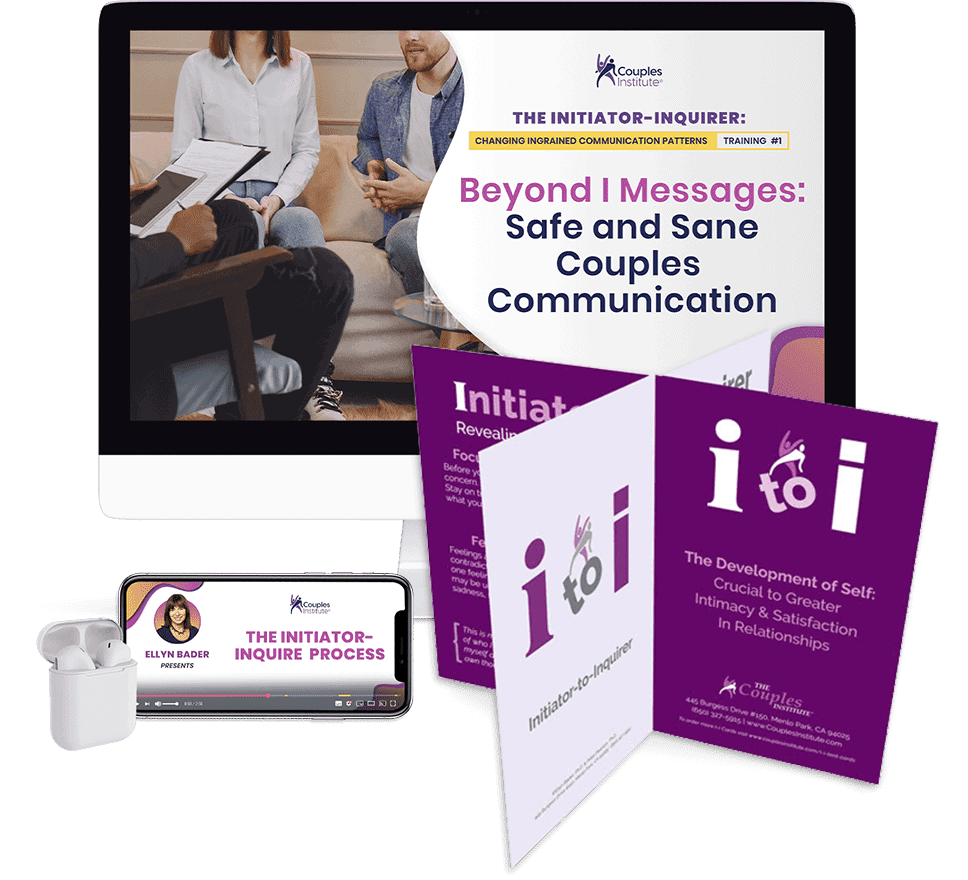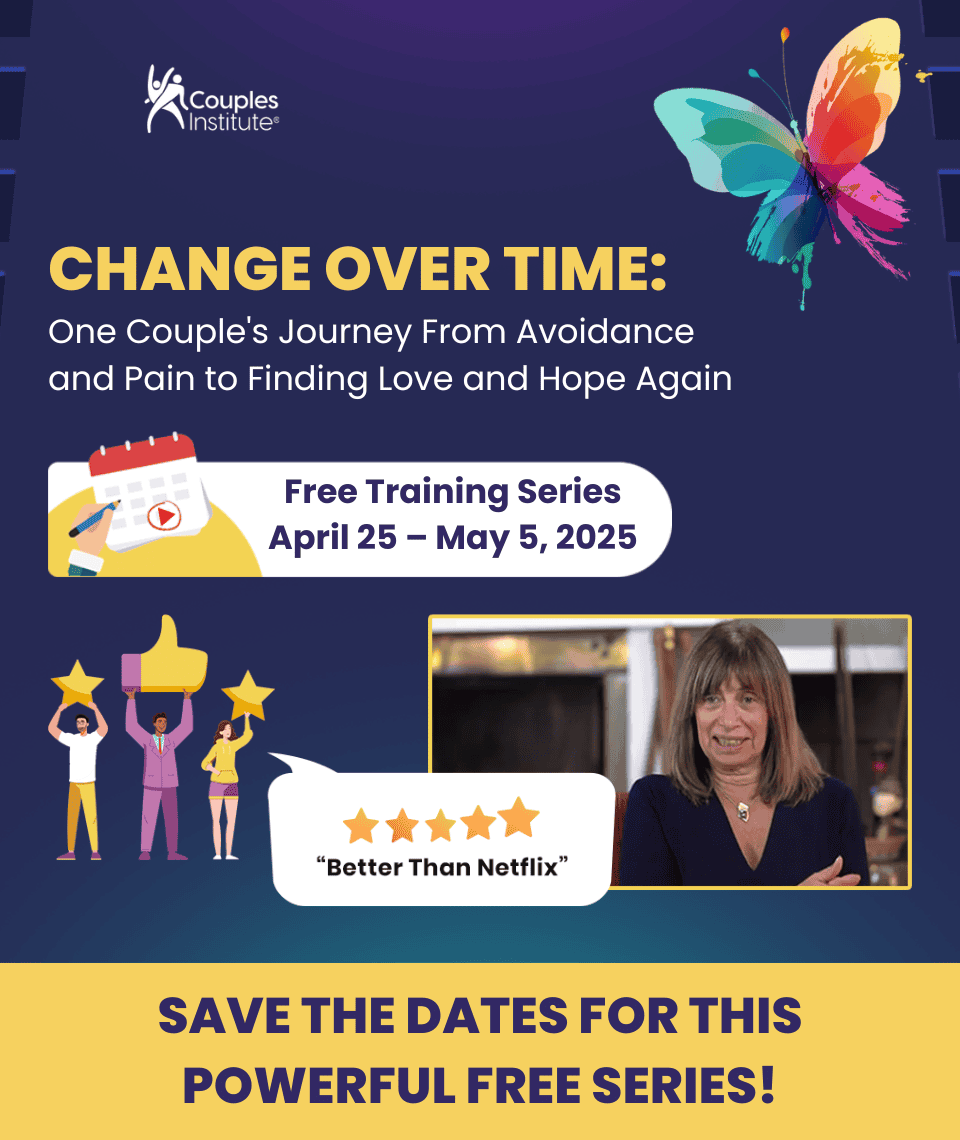By Emphasizing 4 Quandrants of Effective Communication
The most common presenting problem couples report is….
Communication.
But what does that really mean? If you ask couples what they mean, the responses are typically disappointingly vague. Often they think just one new skill is needed. Some believe it is a skill like archery, as if with the right technique they can hit one conversational bull's eye after another.
Survey a large group of therapists and it's doubtful you could get a clear consensus what communication is or how to teach it. And yet, it is one of the most commonly used words in marital therapy and in couples' self help books.
Here's a quick model we give couples to dispel the notion that a simple technique is all that is needed to make their dialogues go easier. You can use this approach with your clients anytime you get stuck and aren't sure where to go next.
In this model there are four quadrants that create effective communication. Couples can get stuck on any or all of them. They are:
1. The content of the problem is often too vague to discuss.
2. The symbolism of the problem is unknown to one or both partners.
3. The process of how they discuss the problem is ineffective (attacking vs. describing).
4. The outcome they desire from discussing the problem is enormous (generally means huge change in the partner with little support or encouragement).
Take the common example of household clutter. Rick and Ann can't “communicate,” or in other words, discuss it constructively. Let's use the model.
Ann says, “You never pick up after yourself.” The content of the problem is about their messy house. To her this symbolizes that Rick does not care about her well being. However, instead of saying this, she increases the frequency of her nagging.
Rick says, “You're never satisfied. No matter how much I pick up, it's not good enough. All you do is nag.” The content of the problem for Rick is Ann's nagging behavior. To him this symbolizes that he is once again an incompetent child who is never good enough Now he gets nagged at home by his wife, just like he did earlier in life. He doesn't respond by discussing the symbolism openly. Instead, internally he says, “screw it. If she wants to treat me like a kid, that's what she gets.”
Instead of having a good process for discussing the problem, Ann intensifies her bossy victim behavior, and he intensifies his stance as a rebellious victim. Finally, they come to see you, reporting that they can't communicate.
What does each person want? Respect and a change in their partner.
Neither wants to adjust to make it easier for the other person to be more responsive.
When intervening, you can go to any of the four points. The couple can:
1. Change how they talk about it.
2. Make the content more specific.
3. Describe what they desire in the immediate dialogue. This is something the other person can do right now vs. later.
4. Describe the symbolism of the problem and why it is so loaded.
5. Learn to be more emotionally resilient while discussing it.
To be more emotionally resilient, partners must learn to “take the jolt” and withstand a perceived “attack” from the partner. To help them do this, we say the criticism isn't really personal. The “attack” is mostly a poor attempt to verbalize an underlying distress. Help couples get beyond the immediate discomfort to communicate about the symbolism of a problem and identify a specific, obtainable desired outcome. They will need to take turns hearing their partner describe the symbolism, why it's emotionally loaded, the outcome desired and the mutual benefits of attaining that outcome. Don't let them try to solve it without each person's distress being totally understood.
Good communication requires self-awareness, a willingness to be open and vulnerable, and an appreciation of the effect of our actions on the partner. No wonder it's such a common problem.
Our most powerful communication tool is the Initiator-Inquirer process. You might be familiar with this technique, which is now used by thousands of therapists around the world. It goes one giant step beyond communication, and helps both partners in their self discovery. It is taught in our DVD called “Neutralize the Anger.” For more information on these or other resources, click therapist resources.


 We respect your privacy.
We respect your privacy.



